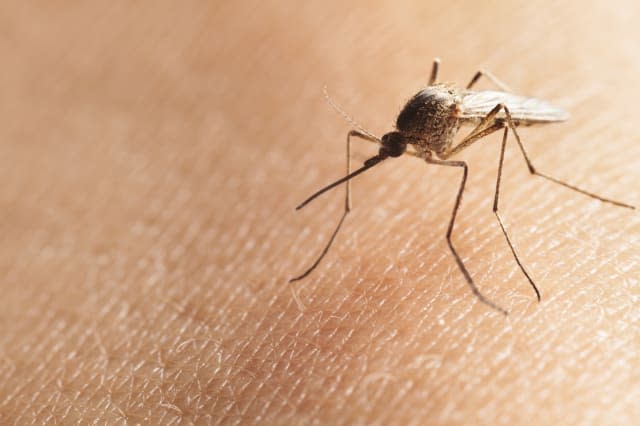Deferral for would-be blood donors who have visited Zika-affected countries

Donors who have travelled to countries affected by the Zika outbreak cannot give blood for a month after returning home, officials have said.
NHS Blood and Transplant said that "safety of the blood supply is paramount" as it imposed the 28-day ban on blood donation to ensure that the virus is not passed on.
Blood services across the UK have agreed to implement the measure as a precaution.
When a person gives blood they are asked a series of questions including their recent travel history. The NHS already has a series of "deferrals" in place for people returning home from areas affected by tropical illnesses - including a number of countries at the centre of the current outbreak. This list has now been extended to include all countries affected by the Zika outbreak.
"The safety of the blood supply is paramount and it is important we implement any precautionary blood safety measures agreed here as a result of an increasing prevalence of infectious diseases found around the globe," an NHS Blood and Transplant spokeswoman said.
"Travel to most of these countries already brings a blood donation deferral of at least 28 days. A 28 day deferral for travel to areas with a tropical virus risk and a six month deferral for travel to malarial areas exists."
The news comes as the World Health Organisation warned that European countries where Aedes mosquitoes are present could be at risk.
According to mosquito maps found on the European Centre for Disease Prevention and Control website, the Aedes aegypti mosquito which carries the virus is established in Georgia, part of Russia next to the Black Sea, and Madeira.
Dr Zsuzsanna Jakab, WHO regional director for Europe, said: "Every European country in which Aedes mosquitoes are present can be at risk for the spread of Zika virus disease.
"A number of travellers infected with Zika have entered Europe, but the disease has not been transmitted further, as the mosquito is still inactive. With the onset of spring and summer, the risk that Zika virus will spread increases.
"Now is the time for countries to prepare themselves to reduce the risk to their populations. As there is no vaccine or treatment for Zika virus disease, we must protect the European Region by stopping the disease at its source.
"I urge European countries to act early in a co-ordinated way to: control the mosquitoes, including community engagement in eliminating mosquito breeding sites and planning for insecticide spraying and killing of larvae in case of outbreaks; inform people at risk, especially pregnant women, about preventing mosquito bites; enhance surveillance and ensure laboratory detection of Zika virus disease and its neurological complications; and step up research to understand Zika virus disease and develop diagnostic tests and vaccines."
On Monday WHO declared an international emergency over the virus and its link to birth defects.
Zika has been linked to thousands of babies being born with underdeveloped brains in Brazil. Colombia has also seen a rise in the number of patients diagnosed with a rare neurological disorder which can cause paralysis.
WHO officials have predicted as many as four million people could be infected with the virus this year.
Meanwhile two adults have been confirmed with the Zika virus in Ireland. The cases - the first of their kind in the country - are unrelated to each other and both patients are said to be currently well and fully recovered.


